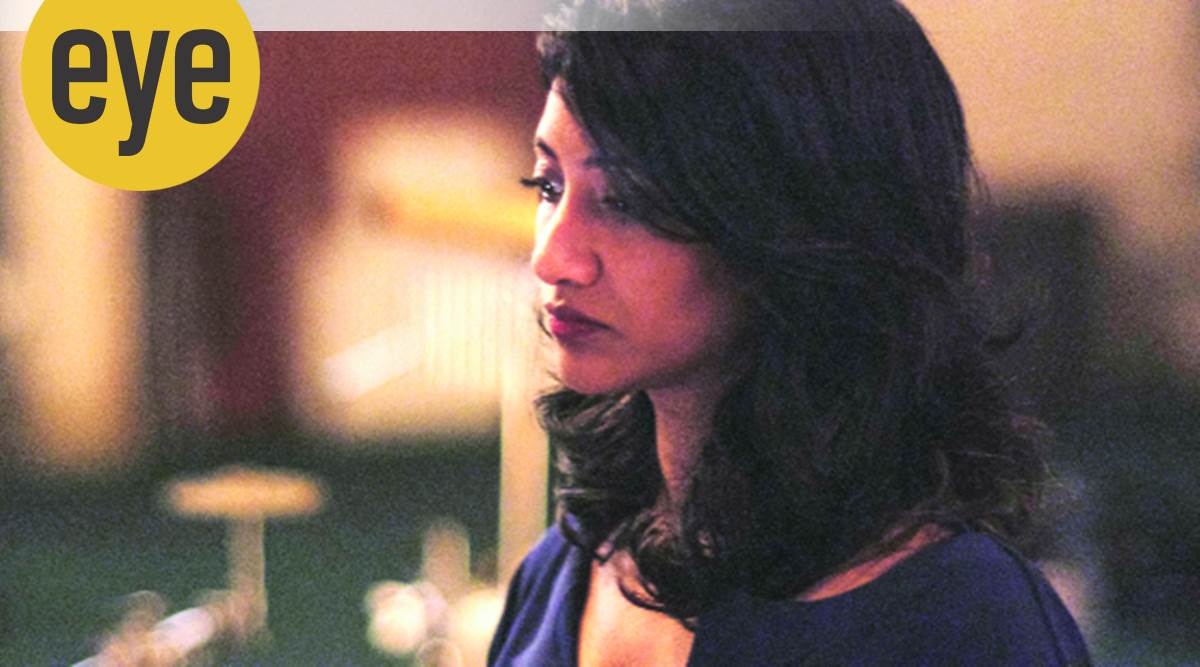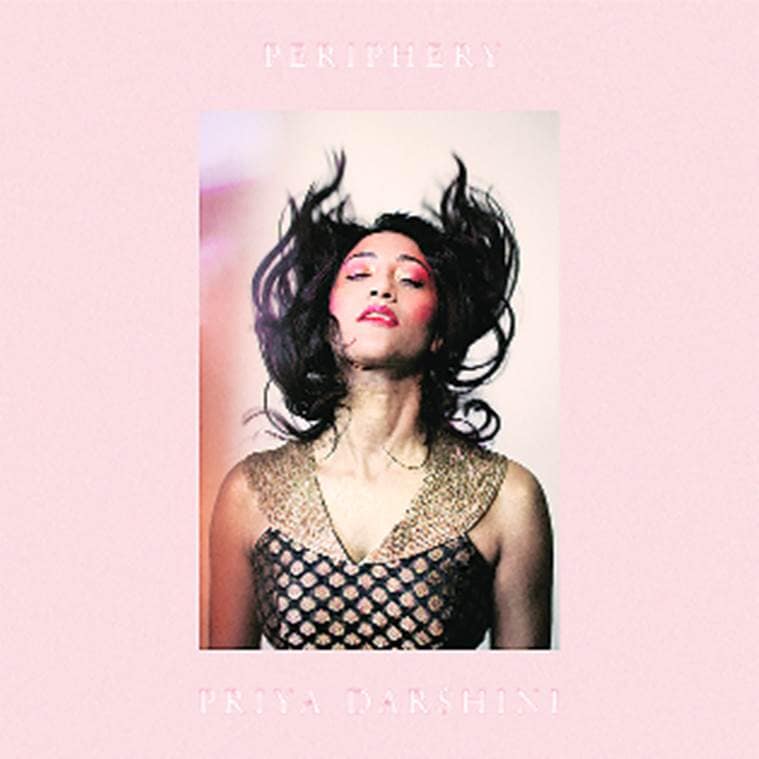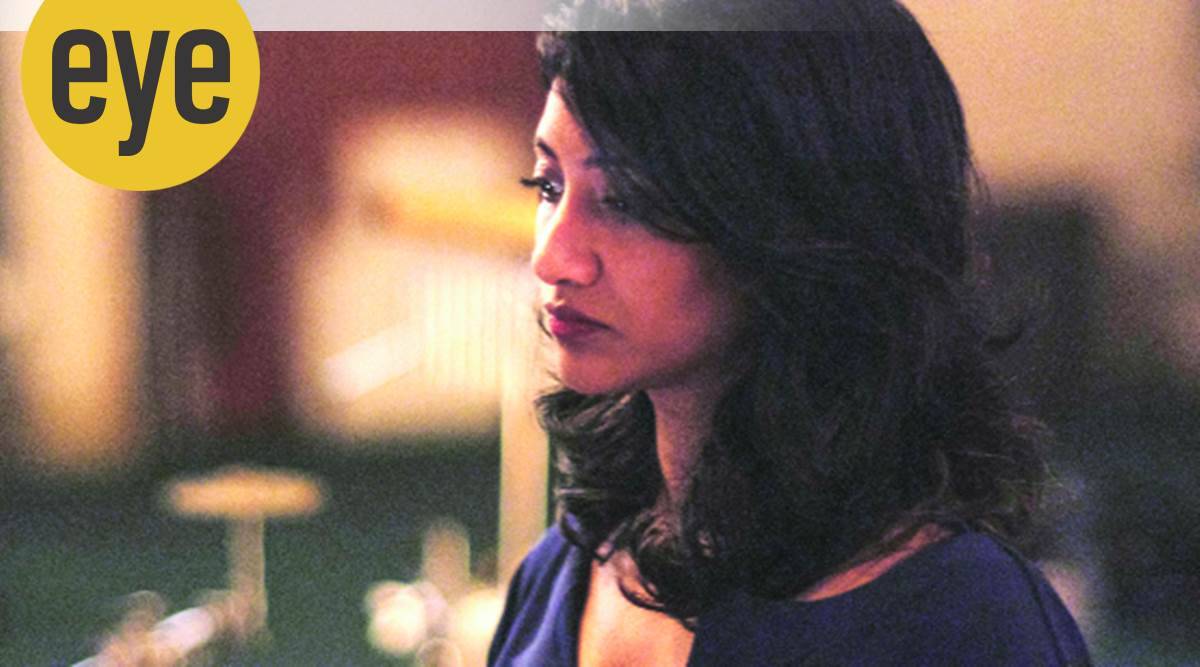[ad_1]
 A quick Bollywood playback stint, with D (2005) and Maine Pyaar Kyun Kiya (2005), left her disenchanted. “It just wasn’t for me. I felt very disconnected from it. I craved to create original music,” says Priya Darshini.
A quick Bollywood playback stint, with D (2005) and Maine Pyaar Kyun Kiya (2005), left her disenchanted. “It just wasn’t for me. I felt very disconnected from it. I craved to create original music,” says Priya Darshini.
Seven years in the past, when Mumbai-based singer Priya Darshini moved to the US, she might by no means really feel at home. Born in Chennai into a Tamil-speaking household and raised in Mumbai, Priya Darshini would usually dwell upon the idea of home and what it actually meant. “Was it a space, a construct, a community?” she would usually introspect. But simply when she was permitting “all the beautiful cultures in life to co-exist”, together with that of her husband and musician Max ZT’s Jewish-American household, the political unrest owing to the anti-immigration rhetoric of the outgoing Donald Trump administration jolted her. “Like other immigrants from around the world, I constantly felt on the periphery,” she provides. When she channelled her misery by way of social-media feedback and posts about American politics, she was snubbed nearly instantly. “They said I didn’t belong. If I said something about Indian politics, people in India would tell me that I didn’t even live there,” says Priya Darshini, 36, over the telephone from Brooklyn, New York.
Her grappling with the thought of not belonging wherever birthed her debut album Periphery (Chesky Records) in March. It leads with the fragile single Home, which seems on the idea of advanced identities in a world the place some individuals inform others about who has the correct to reside the place. “Writing the record was cathartic. It helped me process that it was just about finding stillness within myself and learning to embrace myself in all my authenticity and honesty,” she says. The exploration of geopolitics has earned Priya Darshini’s Periphery a nomination within the Best New Age Album class on the 63rd Grammy Awards, to be held on January 31at Staples Center in Los Angeles. About the celebrated nomination, she says, “the feeling hasn’t sunk in”.
The singer is up towards Tibetan multi-instrumentalist Tenzin Choegyal with Laurie Anderson and Jesse Paris Smith (Songs from the Bardo), Canadian guitarist Jim “Kimo” West (More Guitar Stories), Helsinki band Superposition (Form/Less), Cory Wong and Jon Batiste (Meditations). The solely different Indian title to characteristic within the hallowed nominations is Anoushka Shankar, for her album Love Letters, underneath Best Global Music Album. Shankar’s half-sister Norah Jones (I’ll Be Gone with Mavis Staples) additionally finds a nomination, underneath Best American Roots Music.
The earthy East-West crossover Periphery, which unfurls slowly, blends Priya Darshini’s Indian classical coaching with American folks and pop. It options Max ZT, cellist Dave Eggar, drummer Will Calhoun and percussionist Chuck Palmer. The Banyan Tree and Cocoon take root in her melancholia. The latter music, based mostly on raga Puriya Dhanashree, strikes hauntingly to cello notes. The sounds in Des, the melodic raga Desh composition, and the wondrous Jahaan, co-written with filmmaker Devashish Makhija (Bhonsle, Ajji), saunter from Sufi to Middle Eastern.
With recording engineer Nicholas Prout on the helm, all the album has been recorded reside in 12 days, and on one microphone, positioned in an deserted church in Brooklyn. The sound is stripped of any compression or post-production elaborations. Crystal clear vocals and church acoustics provide an immersive expertise. “You can feel the space, the architecture of the room. It’s like using a very old-school recording style, where the past meets the future,” says Priya Darshini. In such a set-up, there couldn’t have been any retakes or separation of tracks, so, even when one individual made a mistake, all of them needed to begin over once more.
“The only way” to fulfill the problem, says Priya Darshini, “is by diving deep into who you are, and staying honest. We had to be very vulnerable, drop all our walls and function from that space of vulnerability. So, it really mattered to me that I was surrounded and working with people who I could hold the space with. It was an emotional and powerful experience for us,” she says.
 The cowl of her Grammy-nominated album
The cowl of her Grammy-nominated album
Trained underneath santoor virtuoso Pandit Shiv Kumar Sharma, Max — aka “Jimi Hendrix of the hammered dulcimer” — weaves a stunning tapestry along with his hammered dulcimer (Western cousin of the Indian santoor), with the primary percussion sound created by sweeping Indian brooms towards the ground. Priya Darshini moved across the house to get a completely different vary of sound for every music. The album, in English and Hindi, alternates between many worlds. It even options her rendition of Sanware Sanware — composed in raga Bhairavi by sitar legend Pandit Ravi Shankar and initially sung by Lata Mangeshkar in Hrishikesh Mukherjee’s 1960 movie Anuradha. “This piece is such a tall order. I wasn’t planning to sing it at all. But label founder David Chesky had heard me sing this at a benefit concert and wanted me to include it,” says Priya Darshini, who falters generally on this tough piece, the fatigue catching up, it appears, however she pulls by way of together with her classical coaching.
Born into a musical household, one in all Priya Darshini’s grandmothers was a veena participant and the opposite a Carnatic classical vocalist. In Mumbai, aged eight, Priya lapped up every part she noticed on MTV. “Curious about the music that was not coming to us, I started asking people who’d travel, to get me music from wherever they went,” she says. One of the tapes her father introduced from an official journey overseas had songs by jazz queen Ella Fitzgerald. “The vocals blew my mind,” says Priya Darshini, who quickly started to eat jazz, listening to the likes of trumpeter legend Miles Davis. She quickly felt the type’s similarities to the buildings of Indian classical music.
She educated initially underneath Carnatic classical artiste Bombay Lakshmi Rajagopalan after which in Hindustani classical music from Pandit Sunil Borgaonkar for the final 15 years. She carried out with faculty bands whereas finding out mass media at KC College in Mumbai, earlier than pursuing filmmaking at New York Film Academy. A quick Bollywood playback stint, with Vishram Sawant’s D (2005) and David Dhawan’s Maine Pyaar Kyun Kiya (2005), left her disenchanted. “It just wasn’t for me. I felt very disconnected from it. I craved to create original music,” she says. In 2008, she was chosen by American musician Roy Wilfred Wooten for his famed Black Mozart Ensemble, which mixed jazz with classical music, hip hop and bluegrass. Priya Darshini travelled with the band for 3 years (2005-08) and recorded in Nashville, the US, usually. It was on a journey again home across the similar time that she met Max, who was staying in Mumbai then to be taught from Sharma on easy methods to give the hammered dulcimer an Eastern contact.
Much earlier than beginning the artiste collective Brooklyn Raga Massive within the US in 2017, she was a eager sportsperson. At 23, she grew to become the primary Indian girl to finish the 100-mile Himalayan Ultra Marathon. “I’m most comfortable amid nature, which is also the sense you’ll get in the album,” she says. A video for Home, shot in Borivali National Park, close to which she lived for a few years, was just lately added to Periphery. Will the once-Borivali-girl carry “home” the hallowed gramophone? If it occurs, she says, “It would be huge.”
© The Indian Express (P) Ltd
[ad_2]
Source hyperlink











